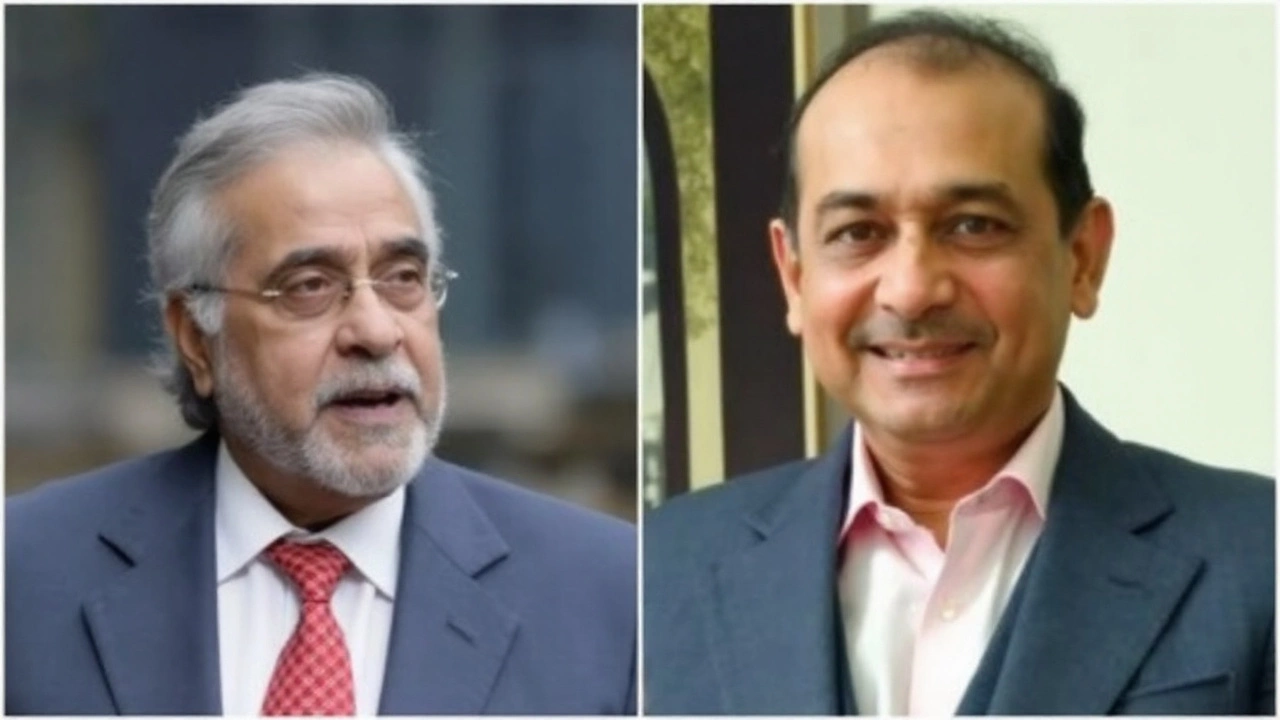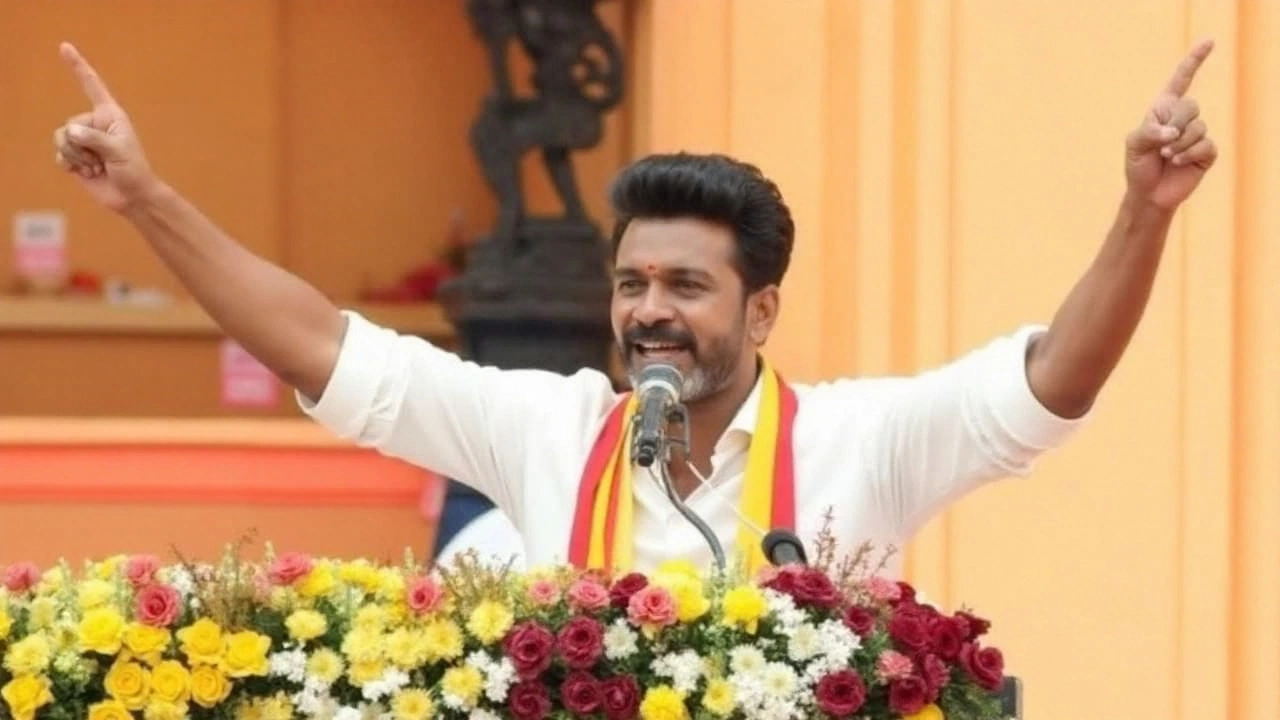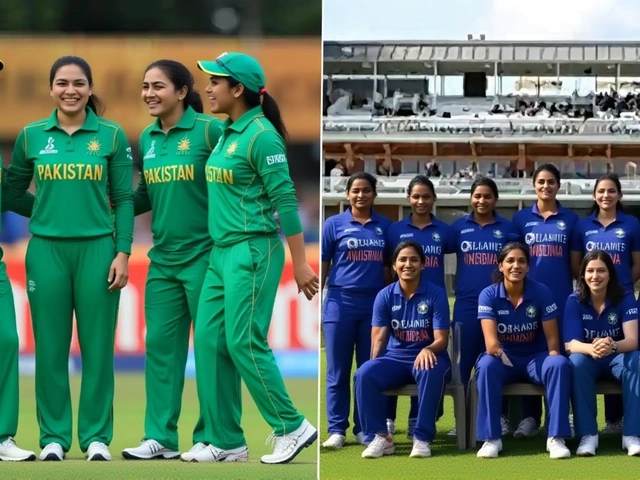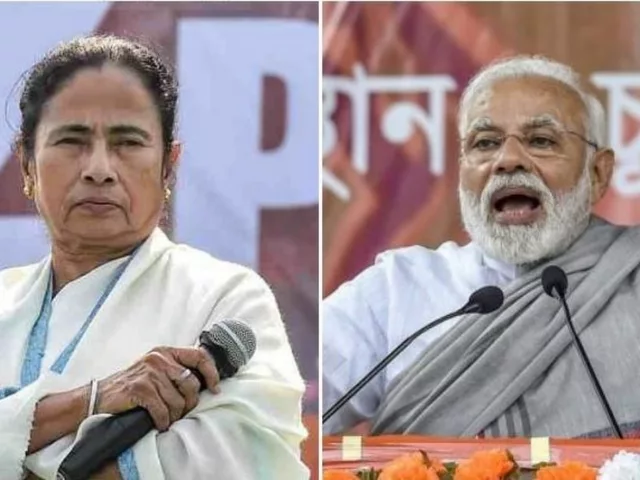Vijay draws battle lines in Madurai
No hedging, no half-steps. In Madurai, actor-turned-politician Vijay told a roaring crowd that his party, Tamilaga Vettri Kazhagam (TVK), will go it alone in the Tamil Nadu elections in 2026. No alliance with the ruling DMK. No deal with the BJP. And a clear message to supporters: the real contest, in his view, is between TVK and the DMK.
The venue—Parapathi in Madurai district—felt less like a routine party meeting and more like a launch pad. Vijay, at his party’s second state-level conference, set the tone for his statewide political run. He said TVK will field candidates in all 234 assembly seats. That’s a bold claim for a party founded in 2024, but it fits the mood he is trying to build: a fresh pole in a state that has mostly swung between the DMK and AIADMK for decades.
Vijay split his attack between ideology and governance. He called the BJP his party’s ideological rival, accusing it of ignoring Tamil pride and state-specific issues. He raised familiar flashpoints: the arrest of Tamil Nadu fishermen by Sri Lankan authorities, the demand to retrieve Katchatheevu, and the push to scrap NEET. He alleged the Union government was indifferent to the state and even charged that BJP leaders were suppressing archaeological findings from Keezhadi—claims that feed into a long-running cultural and political narrative in Tamil Nadu.
On the state’s ruling party, Vijay went straight for performance and delivery. He hammered the DMK government led by Chief Minister M.K. Stalin on corruption, women’s safety, and unkept promises. He dismissed flagship cash transfer schemes as too little for the scale of distress on the ground and addressed the Chief Minister as “uncle” in a calculated dig at the current leadership. The tone was personal, but the target was political: he wants voters to see TVK as the sharper, cleaner option.
AIADMK didn’t get a pass either. Vijay criticized the party for its alignment with the BJP, ridiculing it as a “slave alliance.” By taking swipes at all three major formations—the DMK, BJP, and AIADMK—he planted TVK firmly in a new lane: anti-establishment, state-first, and independent.
The Madurai conference also had a nuts-and-bolts moment. Vijay unveiled a TVK mobile app to drive membership and onboard volunteers. It’s a sign that the party is moving from rallies and fan energy to building a database, capturing contacts, and forming booth-level teams. He launched his statewide political tour from Tiruchirappalli, and Madurai served as the first big show of strength since that kickoff.
For a state used to celebrity politics, none of this is entirely new. But Vijay’s pitch is different in one key way: he is closing the door on pre-poll alliances early, forcing voters to view TVK as a direct contender rather than a supporting act. That clarity is rare in Tamil Nadu, where coalitions often decide the final shape of power.

Can a third front break Tamil Nadu’s two-party mold?
Here’s the hard problem Vijay has embraced. Tamil Nadu’s first-past-the-post system rewards concentrated vote banks and strong organization. New parties can rack up votes but still fall short of seats. We saw that in 2021 when Seeman’s Naam Tamilar Katchi drew about 6.5% and Kamal Haasan’s Makkal Needhi Maiam managed around 2.5%, yet both ended the night with zero seats. To win, TVK needs more than crowd energy—it needs a deep ground game.
That means building cadres in every district, mapping voters booth by booth, and training first-time candidates. Tamil Nadu has tens of thousands of polling booths. Every booth needs at least a handful of reliable volunteers. Digital sign-ups help, but the decisive work is still door-to-door, in villages and dense urban wards, with local influencers on board. Fan clubs can give TVK a head start, yet a film fan and a committed political worker are not always the same person. Converting that energy into vote-day presence is the real test.
Vijay’s decision to frame the BJP as an ideological opponent is tactical. The BJP’s footprint in Tamil Nadu remains limited, but it sets the tone of national politics and shapes the state’s relationship with the Union government. By leaning into issues like NEET, Katchatheevu, and Keezhadi, TVK is signaling that it will fight on cultural identity and state rights—areas where the BJP faces a stiff headwind in the state.
His takedown of the DMK is more direct because that’s the seat of power he wants. The DMK runs on a mix of welfare and rights-based politics. Its cash transfer programs, free bus travel for women, and public health pushes have a strong base. Vijay is betting that frustration—over jobs, safety, and delivery—can puncture that support. Calling the schemes inadequate is his way of saying: the state needs deeper fixes, not just payouts.
What about AIADMK? The party still commands a loyal vote bank, especially in the western belt and parts of the delta. Vijay’s attack on its alignment with the BJP is meant to peel away voters who dislike national intervention in state politics. If TVK can draw urban youth, first-time voters, and parts of the traditional anti-DMK bloc without alienating soft DMK supporters, it can create a competitive lane.
The timing also matters. The 2026 assembly poll is nearly two years away. That gives TVK room to expand, but it also gives rivals time to regroup and box the party in. Expect the DMK to spotlight welfare delivery and law-and-order metrics. Expect the BJP to hammer national schemes and accuse TVK of identity politics. Expect AIADMK to play the experience card and claim it’s the only viable check on the DMK.
Vijay’s challenge is stitching a coalition of voters that crosses regions and communities. Tamil Nadu’s electoral math is layered—caste dynamics, language pride, urban-rural splits, and local leaders all matter. A star can draw a crowd in Coimbatore and Cuddalore, but winning both needs different micro-campaigns. TVK will have to find credible local faces, keep factions from sprouting, and prevent ticket distribution from turning into a family-and-friends affair. Voters have seen that movie before and will spot it quickly.
On policy, Vijay’s early signals are clear: a strong line against NEET, sharper state rights, and a focus on fishermen’s safety and livelihoods. These issues travel well across the state, but voters will want more detail—on jobs, MSMEs, school quality, water management, and urban infrastructure. If TVK releases a clean, costed plan and repeats it relentlessly, it can turn personality-led momentum into a program-led pitch.
Money and compliance are the unglamorous parts of a campaign, yet they decide how far a new party can go. Candidate deposits, office rentals, vehicles, media, and legal teams add up fast. Transparent fundraising and regular financial disclosures can help TVK avoid the usual traps that sink newcomer parties. The Election Commission’s paperwork—from registration updates to symbol allocation—also needs a calendar and discipline. Small misses can snowball during crunch time.
One question many voters will ask: can a film star run a government? Tamil Nadu has seen this before. M.G. Ramachandran and J. Jayalalithaa both made the leap and reshaped the state. But they did it with seasoned organizational machines and uncompromising control over their parties. Vijay’s version will look different. He is trying to blend star pull with a volunteer-heavy network that was built through fan clubs and social work. If he can professionalize that network without losing its energy, he will be in the game.
The Madurai event also showed Vijay’s instinct for political theater. Calling the Chief Minister “uncle,” spotlighting Keezhadi, and talking about Katchatheevu are not random jabs. They are designed to trigger pride, grievance, and contrast—all in one frame. DMK will counter with delivery numbers and accuse TVK of showmanship. BJP will say it is the only party that can empower Tamil Nadu nationally. AIADMK will argue that splitting votes only helps the ruling party. Voters will hear all three and then ask: who can be trusted to run schools, hospitals, buses, and the police? That’s the frame TVK must be ready for.
There is also the risk of isolation. By shutting the door on alliances now, Vijay frees himself from negotiation drama but loses tactical flexibility. If the final weeks before polling throw up a wave or a crisis, parties with allies can pivot faster. TVK will have to bet on momentum—and keep it alive for months. That means ground events, targeted micro-campaigns, and quick responses to local flashpoints. It also means discipline online, because digital spats can drain goodwill and time.
Still, the appetite for a third choice is real. Many young voters don’t carry old party loyalties. Women voters, especially in cities, care about safety and services as much as subsidies. Small traders want predictability, not surprise taxes or raids. Farmers want water security and fair procurement. If TVK speaks clearly to each group without turning into a laundry list, it can build a core vote that doesn’t evaporate under pressure.
The road from Madurai to Fort St. George is long, but the direction is unmistakable. Vijay has set his party’s position with unusual clarity: no alliances, full slate, direct fight. He has named his rivals, picked his issues, and signaled he is ready for the grind. Whether TVK becomes a spoiler, a kingmaker, or a serious contender will depend on what happens next: can the party turn a packed ground into a disciplined booth? Can it move from slogans to solutions? And can it do it fast enough to matter in 2026?
For now, the message is simple and loud: there is a third pole on the ballot, and it is not waiting for anyone’s permission.






Written by Aarav Srinivasan
I'm Aarav Srinivasan, an expert in information services, media, and public relations. I have a passion for connecting with people and sharing stories that matter. My interests lie in exploring Indian life, culture, and news, which I write about extensively. I strive to bring attention to the diverse perspectives and experiences of the Indian community. My mission is to create meaningful connections through the power of storytelling and media.
All posts: Aarav Srinivasan